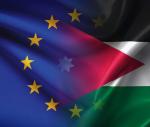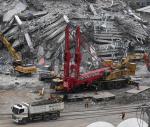You are here
Kingdom’s economic growth badly hit by regional conflict — report
By Khetam Malkawi - Jan 24,2016 - Last updated at Jan 24,2016
AMMAN — Jordan’s economic growth considerably slowed in 2015, with the country’s gross domestic product (GDP) increase estimated at 2 per cent, well below the average of 5.8 per cent between 2000 and 2011, said a new international report.
“The World Employment and Social Outlook: Trends 2016”, released by the International Labour Organisation (ILO) last week, said unemployment, vulnerable employment and working poverty are expected to remain high in Arab states outside the Gulf Cooperation Council (GCC), the report said.
The incidence of vulnerable employment is expected to remain above 33 per cent in 2016 in non-GCC countries, while the rate of working poverty (living on less than $3.1 per day) is expected to be 36 per cent, according to the ILO.
The report added that less than one in five youths is in the labour market across non-GCC Arab economies, compared to one-quarter of the youth population in GCC countries.
It listed Jordan as one of the countries where the problem of weak job creation in the face of a rapidly growing labour force is expected to escalate in the near future. Such is the case with Iraq and Lebanon, where the influx of Syrian refugees is also steadily growing, according to the report.
“Some estimates suggest that for Lebanon and Jordan, the direct fiscal costs associated with the Syrian crisis related to health, education and infrastructure amount to roughly 1 per cent of GDP,” it added.
Nevertheless, and despite the estimated short-term costs for host countries’ economies, the large influx of migrants typically represents a resource in the longer term, the report suggested.
As refugees gradually integrate in local labour markets, economic growth and domestic demand are expected to improve.
For instance, a preliminary ILO study showed that Syrian direct investment inflows have benefited Jordan by accelerating industrial activities, while also creating employment opportunities for both Syrians and Jordanians.
The World Employment and Social Outlook Trends 2016 said the world economy is estimated to have expanded by 3.1 per cent in 2015, over half a percentage point less than had been projected a year earlier.
“If current policy responses are maintained, the outlook is for continued economic weakening, posing significant challenges to enterprises and workers,” the report said, adding that over the next two years, the world economy is projected to grow by only around 3 per cent, significantly less than before the advent of the global crisis.
Related Articles
The International Monetary Fund (IMF) has lowered its economic growth forecasts for most Arab countries over unrest in the region but said growth would remain generally strong in the oil-rich Gulf states.
AMMAN — The Jordan Strategy Forum (JSF) on Monday released a report on the occasion of International Labour Day, which falls annually on May
The International Monetary Fund (IMF) said on Wednesday that losses from lower oil exports should sap up to $300 billion from economies in the Middle East and Central Asia this year, as countries in the region adjust to falling crude prices.
















